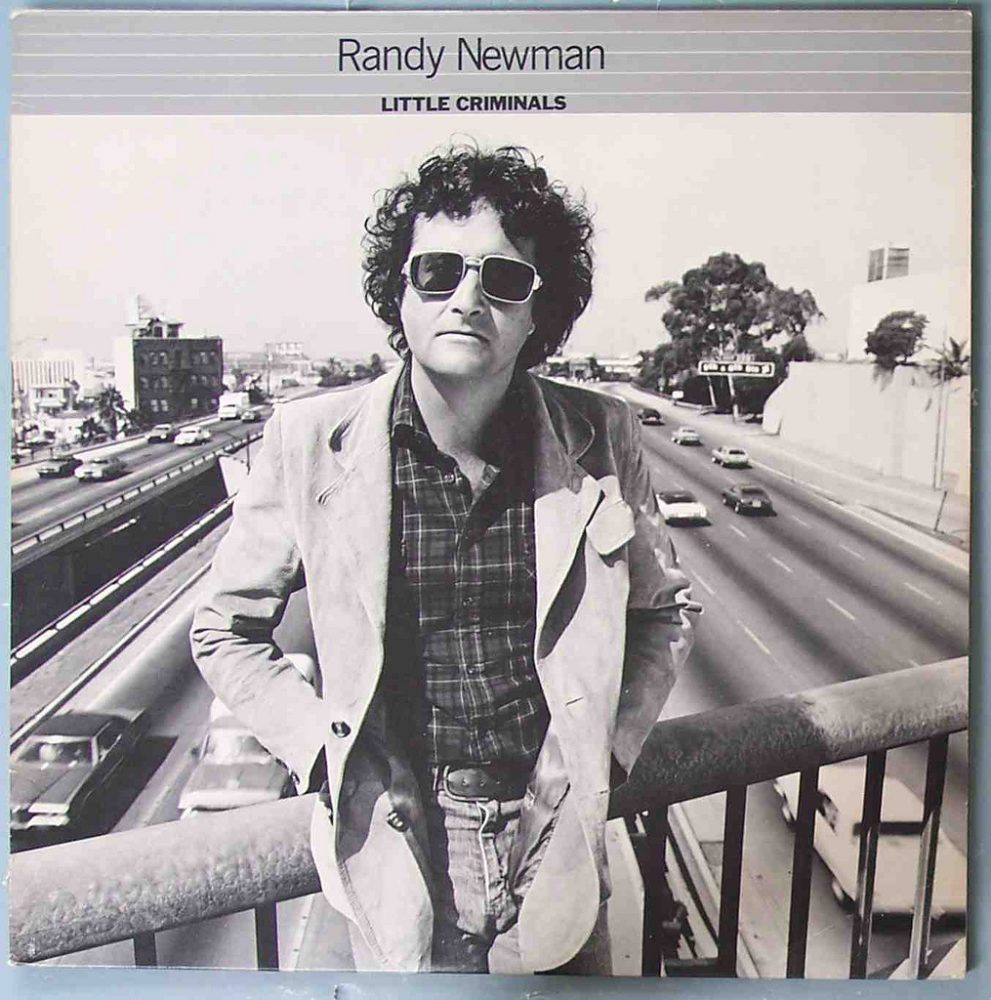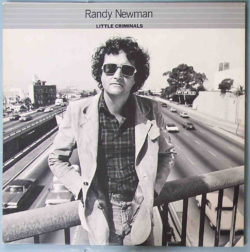Randy Newman
Musician and composer Randy Newman was influenced by the time he lived in New Orleans as a child and many of his songs, including the poignant “Louisiana 1927,” reflect this.

Courtesy of Flickr
Little Criminals. Newman, Randy (Composer)
Though not native to Louisiana, musician, songwriter, and composer Randy Newman has found creative inspiration in the state for much of his storied career in entertainment. He has achieved his greatest musical success as a film and television composer, especially for a series of successful Disney/Pixar animated films. He has won two Academy Awards (out of twenty nominations), six Grammy Awards (out of fifteen nominations), and three Emmy Awards. Born and raised in Los Angeles, California, Newman spent time regularly in New Orleans and other parts of the South during his childhood. He has become closely identified with the American South in general and with New Orleans in particular through his laconic, shuffle-based musical style and frequent reliance on subject matter related to the region. After the devastation of New Orleans in 2005 that followed Hurricane Katrina, Newman’s song “Louisiana 1927” (written in 1974 about the Great Flood of 1927 in the lower Mississippi Valley) became a rallying anthem for beleaguered Louisiana residents. While verses describe “six feet of water in the streets of Evangeline,” the song’s plaintive chorus struck a resonant chord with the citizens of New Orleans in the early years of post-Katrina reconstruction: “Louisiana! Louisiana! They’re trying to wash us away …. They’re trying to wash us away ….”
A Childhood in New Orleans and Early Career in Los Angeles
Born during World War II, Randall Stuart Newman first arrived in the Crescent City as an infant in the arms of his mother, who arrived to stay with her family immediately after her son’s birth while his father, an internist, was stationed with the armed services in Sicily. Newman spent many subsequent childhood summers with family in New Orleans, as well as with relatives in Jackson, Mississippi, and Mobile, Alabama. His father’s side of the family included three uncles—Alfred, Lionel, and Emil—all highly regarded film composers, as were two cousins and a nephew. Newman first made his mark in the eclectic rock ‘n roll scene of Los Angeles in the early 1970s as a singer-songwriter prone to cynical, sometimes obsessive humor. A professional songwriter by age 17, he released a series of solo albums and penned a number of hits recorded by other artists. An early sign of Newman’s stature among his contemporaries was the 1970 album by singer Harry Nilsson, Nilsson Sings Newman.
Solo-Album Career Marked by Prominent Louisiana References
Newman’s first explicit use of the South, Louisiana, and New Orleans as subject matter came in the solo album Sail Away (1972), a masterpiece that takes on big topics such as the slave trade and American foreign policy, followed by Good Old Boys (1974), an album that contains both scathing indictments and melancholy reminiscences of Southern culture. A four-song sequence relates to Louisiana and New Orleans, beginning with “Louisiana 1927.” It continues with “Every Man a King,” cowritten in 1935 by former Louisiana governor Huey “Kingfish” Long and Castro Carazo, then band director of Louisiana State University. Newman also paid homage to Long on Good Old Boys in the song “Kingfish,” and he wrote “Naked Man,” based on the true story of the outrageous courtroom alibi of a New Orleans man caught with a stolen purse who was arrested in the nude.
Other chart-topping hits by Newman include “Mama Told Me Not to Come” (1966), “Short People” (1977), and “You Can Leave Your Hat On” (1972).
Newman turned to film scores during the early 1980s, the field where he has achieved his greatest success, while his solo songwriting turned increasingly caustic. Louisiana references often imbued his work. On the 1988 album Land of Dreams (a reference to one of New Orleans’s nicknames), the song “Dixie Flyer” describes the writer’s early travel to New Orleans, and “New Orleans Wins the War” recalls the Crescent City of Newman’s childhood before the family returned to Los Angeles:
Daddy said, “I’m gonna get this boy out of this place
Bound to sap his strength
People have fun here, and I think that they should
But nobody from here ever come to no good
They’re gonna pickle him in brandy and tell him he’s saved
Then throw fireworks all ‘round his grave”
Film scores by Newman include Ragtime (1981), Avalon (1990), Toy Story (1995), A Bug’s Life (1998), and Seabiscuit (2003), among many other major motion pictures and animated features.
Soundtracks, Awards, and the Louisiana Music Hall of Fame
Newman returned once more to a celebration of Louisiana and New Orleans culture in the 2009 animated movie The Princess and the Frog, originally inspired by a Grimm Brothers’ fairy tale and featuring the Walt Disney Studios’ first African-American princess heroine. Newman wrote songs for the film, including “Down in New Orleans,” which was nominated for a 2010 Academy Award, and a film score that incorporated elements of jazz, blues, zydeco, and gospel music. He also recorded Fats Domino’s “Blue Monday” for Goin’ Home: A Tribute to Fats Domino, a post-Katrina benefit release produced in New Orleans by the Tipitina’s Foundation. In 2011, Newman was inducted into the Louisiana Music Hall of Fame. In 2012, a state tourism website listing the Top 25 Songs Mentioning Louisiana by Non-Louisiana Artists included Randy Newman twice: “Louisiana 1927” in the number one position, and “Kingfish” at number twenty-five.
